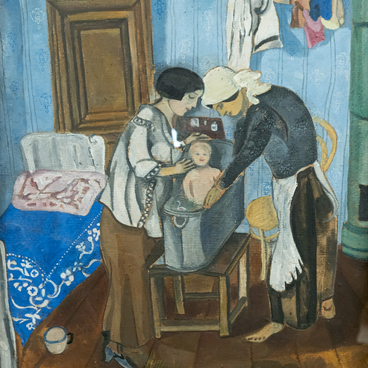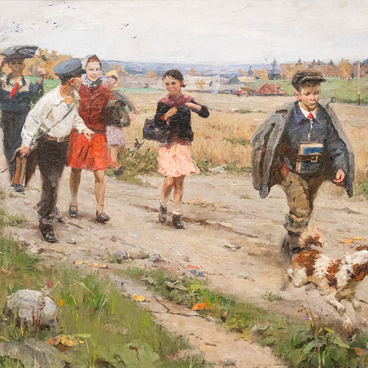Vasily Zertsalov passed away in the village of Bogdanovskoye.
The portrait depicts Vladimir Filosofov. His father was Dmitry Nikolayevich Filosofov, the owner of the village of Bogdanovskoye and an art connoisseur. His mother was Maria Matveyevna Filosofova, born Rokotova, known as Neklyudova during her first marriage.
Vladimir Filosofov became the first chief military prosecutor of the Russian Empire and a member of the State Council. After completing his studies at the School of Jurisprudence, he was a member of the Eastern Siberia Audit Commission of Ivan Nikolaevich Tolstoy, a senator and privy councilor. In his diary, he left sympathetic entries about the exiled Decembrists.
Contemporaries described Vladimir Filosofov in the following way, “He can always leave his book of life open for anyone to read. He is so morally pure that he has nothing to hide.“
In this portrait, Vladimir Filosofov is depicted as a young boy, about three years old, against the backdrop of garden trees and the colonnade of a house terrace.
Vladimir Filosofov’s wife, Anna Pavlovna, was one of the pioneers in establishing higher educational institutions for women and a friend of the Dostoevsky family. His son Dmitry Vladimirovich Filosofov and his cousin Sergei Pavlovich Diaghilev co-edited the Mir Iskusstva (World of Art) magazine from 1898 to 1904.


